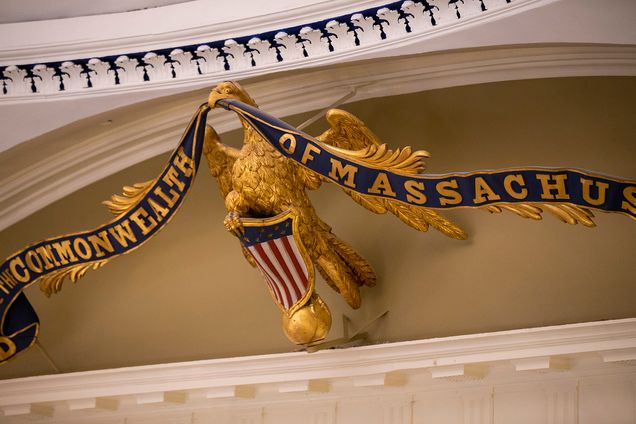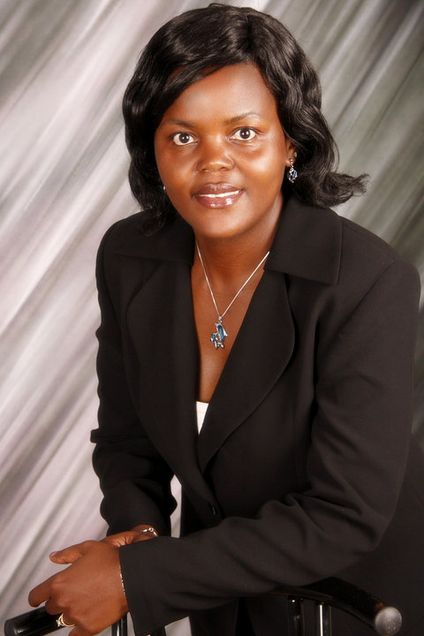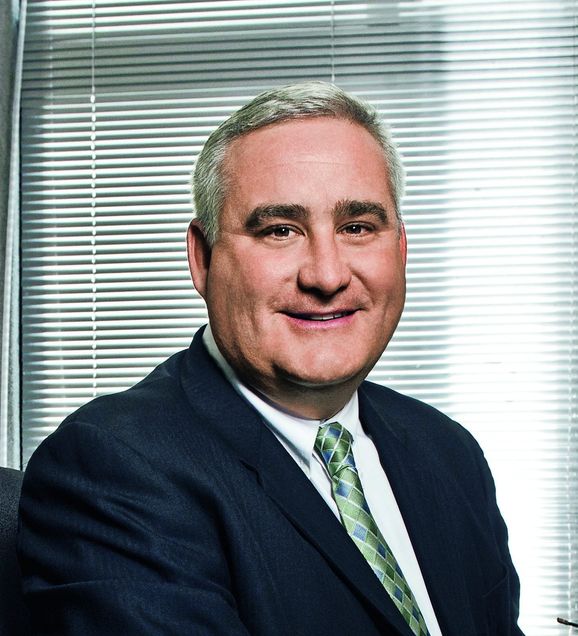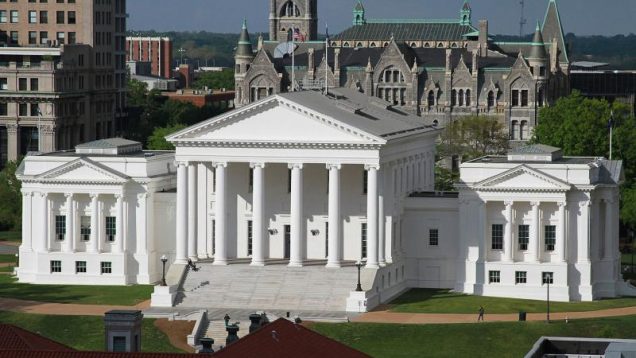Category: Legal Education
Book Review: Fighting Political Gridlock
by David J. Toscano
University of Virgina Press, 2021
ISBN: 9780813946467 (hardcover)
Over the last few days, I had the chance to read David J. Toscano’s excellent new book Fighting Political Gridlock: How States Shape Our Nation and Our Lives. From the dust jacket:
In this profoundly polarized era, the nation has been transfixed on the politics of Washington and its seemingly impenetrable gridlock. Many of the decisions that truly affect people’s lives, however, are being made not on the federal level but in the states. Faced with Washington’s political standoff, state governments are taking action on numerous vital issues, often with greater impact on citizens and their communities than from any decision made in D.C. Despite this, few Americans really understand their state governments or the issues they address. In Fighting Political Gridlock, David Toscano reveals how the states are working around the impasse in Washington and how state policies are increasingly shaping society.
Many people are fed up with the seemingly hopeless nature of the federal government. There is a lack of cooperation not just on important issues like immigration, the environment, and tax law—but also existential threats to the Republic like the deadly January 6th attack on the Congress.
The state governments, however, are filling the void by functioning as they were intended. This was especially true when faced by the global pandemic and a Trump White House that both undermined the government’s response to Covid-19 and at times actively worked against the efforts of the states.
Still, many people don’t realize how important state governments are to their day-to-day lives. Part of the problem is many people do not understand the difference between state and federal government. When I worked for the Massachusetts Senate I would often field telephone calls demanding that my boss, “the Congresswoman,” do something about military spending or nuclear weapons. I would patiently explain that our office could work on many issues, but those were exclusively the job of the federal government. I am willing to bet a similar scenario plays out daily in every state capitol in the country.
This book is a terrific primer on how state governments work and respond to challenges. In Chapter 5, “Players on the Stage” David describes the roles of various state actors such as the governor and legislators. David points out that legislatures often do the heavy lifting in state government and can be the dominant government institution—leading to the Virginia saying that, “Governors come and go, but the legislature is forever.” He also discusses the growing power of the state attorneys general to affect state and national policy, and the special interests that are ever more involved in drafting legislation.
David also emphasizes that every state is different—due both to the state’s history and physical characteristics such as natural resources, and how the state has decided to govern itself. David discusses the first part in Chapter 4, “The Cards You Are Dealt,” and the later in Chapter 3, “State Constitutions Matter.” I find state constitutional law fascinating— states started enacting constitutions in 1776, and the early state constitutions were the model for the U.S. Constitution. The Massachusetts Constitution, written in 1780 by John Adams, remains the oldest in-force constitution in the world. The most recent state constitution, Rhode Island’s, was drafted in 1986. Alabama adopted its sixth constitution in 1901 and at 388,882 words it is the longest and most amended constitution on the planet. How the state organizes itself, splits power creating “checks & balances,” and which rights are protected all affect how the state addresses policy challenges.
Throughout Fighting Political Gridlock, David comes back to a recurring mantra, “states matter!” Often he makes his argument in the context of the pandemic, which has allowed some governors—from both parties—to show real leadership. He goes on to discuss in detail how states have chosen to take on the challenges of: education policy ( Chapter 7), criminal justice (Chapter 8), economic development (Chapter 9), health care policy (Chapter10), culture war issues—such as abortion, guns, and immigration (Chapter 11), and climate change (Chapter 13).
The most compelling chapter may be the conclusion, “Reimagining Civic Engagement.” He begins the chapter with the timeless Lincoln quotation from his First Inaugural Address:
We are not enemies, but friends. We must not be enemies. Though passion may have strained, it must not break the bonds of our affection. The mystic chords of memory will swell when again touched as surely as they may be, by the better angels of our nature.
David discusses the decline of civility in our political discourse. Just as we need cooperation, office holders are no longer just talking past each other but actively yelling at each other. He writes,
Many observers believe that some of the nation’s answers will be found in civic engagement, though there are disputes about the actual meaning of the term. But one thing appears clear: some of the greatest opportunities we have for rejuvenation will involve governments closest to the people. The answers are more likely to be found in our localities and our states than at the federal level. And a key leadership challenge of our time involves lighting the spark and fueling the flame of productive engagement with the representatives who serve us at those levels.
He persuasively argues that civil engagement can be repaired with the following:
-
- Employ empathy, humility, and respect for disagreement as the basis of civility;
- Embrace the truth; reconciliation will follow;
- Reinforce the political guardrails to guide our path;
- Cultivate the disruption of dynamic listening; and
- Reject the paralysis of guilt and the straight jacket of saintliness.
David’s take on the subject is not just thoughtful, but inspiring.
David, a 25 year veteran of Virginia state and local government, is the right author for a book on why states matter and how they fight gridlock. He served as a city councilor and the Mayor of Charlottesville from 1994-1996. He was then elected to the Virginia House of Delegates representing the 57th District, which includes all of Charlottesville and parts of Albemarle County—the seat once held by Thomas Jefferson. He served as a delegate for 14 years, serving on the Commerce and Labor Committee, Courts of Justice Committee, Rules Committee, and the Transportation Committee. David also served on state commissions on such important topics as disability policy, alcohol safety, developing manufacturing and reviewing the state’s child support guidelines. For seven years, the Democratic Caucus elected David the House’s Democratic Leader. He left office in 2020, and now practices law with the Charlottesville firm Buck, Toscano & Tereskerz. Prior to entering public service, David received a BA from Colgate University, a Ph.D. in sociology from Boston College and a J.D. from the University of Virginia. He also writes a very interesting blog called Why States Matter.
I say David is the right author not just because of his extensive experience, but because of his attitude toward policy and politics. If legislators can be broken into work horses and show horses, David is clearly the former who cares about good public policy. David covers the policy choices made by states with the nuance and insight that comes from many years of hard legislative work. Second, although a Democrat with clear policy preferences, this book is not a one-sided argument for a partisan agenda. He is careful to give credit to officials from both parties where merited and criticism when criticism is due. This is very refreshing in a world where too many things read like a spin-doctor issued press release.
 In an otherwise terrific book, one criticism is David consistently referred to Virginia as “the commonwealth.” This was confusing given that everyone knows that Massachusetts is the Commonwealth—and now we can both field criticism from the good people of Pennsylvania and Kentucky.
In an otherwise terrific book, one criticism is David consistently referred to Virginia as “the commonwealth.” This was confusing given that everyone knows that Massachusetts is the Commonwealth—and now we can both field criticism from the good people of Pennsylvania and Kentucky.
In addition, I was left wanting more from the chapter on civic engagement. David’s prescription for better civic engagement is compelling, but he does not describe how we can change public behavior. He is probably right that a successful effort will happen at the state and local levels, but there are several looming questions: How do we improve civic education? How can attitudes change when polite discourse and compromise are viewed as signs of weakness by large segments of the population? This problem will only grow as authoritarianism becomes more popular, polarization increases, and people live in media bubbles. In that vein, aren’t uncivil legislators just reflecting what their constituents want? What can the government do and what are its limits?
These are difficult questions, and I do not have answers. Perhaps David does and can write a follow-up book—I would be excited to read it.
Who Will Save the Africa Parliamentary Knowledge Network? by Elizabeth Bakibinga-Gaswaga
The bright promise that was the Africa Parliamentary Knowledge Network (APKN) is seemingly fading away. This important project, where African parliamentarians and their staff committed to help each other build capacity and share information was making a real difference in the governance of Africa. Sadly, when the United Nation's Department of Economic and Social Advancement (UN/DESA), using funds provided by the government of Italy, stopped supporting the APKN financially a few years ago, the Network not only lost momentum, but seemingly stopped altogether. Just because the Network has been quiet, and perhaps has frayed from lack of use (the Network’s website, APKN.org, is now a Japanese fashion page) does not mean that it is lost. The talented and dedicated people from the various parliaments who made the APKN so promising should take the lead and chart a new course for the Network. This will take participation from across the Continent and should be driven by African voices. This effort will also take money. It is unlikely the UN will be a source-- but perhaps between the APKN members and the partners who have already shown a willingness to support the Network, we can find a new vision and the money to make that vision a reality. For instance, the Commonwealth Parliamentary Association is a potential partner. This conversation could start at the Commonwealth Association of Legislative Counsel (CALC) conference that will take place in Livingstone, Zambia April 1-3, 2019.
 The APKN was established in June 2008 by the international conference “Africa Parliamentary Knowledge Network - Building Together Open and Learning Parliaments in Africa” in Cairo, Egypt. The APKN operated under the authority of the Speakers and Presidents of APKN member assemblies--30 assemblies in all. Representatives of the APKN assemblies met in plenary every two years to approve the reports of activities, the Executive Committee's strategic action plan, and to set new priorities and goals for the next two years. The Network was “hosted" by a variety of Parliaments who took the lead in putting together conferences and led the Executive Committee. The first host was Egypt, before the turmoil and revolution in that country. The next host was South Africa, and finally the Pan-African Parliament took the lead.
The APKN was established in June 2008 by the international conference “Africa Parliamentary Knowledge Network - Building Together Open and Learning Parliaments in Africa” in Cairo, Egypt. The APKN operated under the authority of the Speakers and Presidents of APKN member assemblies--30 assemblies in all. Representatives of the APKN assemblies met in plenary every two years to approve the reports of activities, the Executive Committee's strategic action plan, and to set new priorities and goals for the next two years. The Network was “hosted" by a variety of Parliaments who took the lead in putting together conferences and led the Executive Committee. The first host was Egypt, before the turmoil and revolution in that country. The next host was South Africa, and finally the Pan-African Parliament took the lead.
During its short life, the APKN had a string of successes; thanks in large part to the tireless work of the UN/DESA technical advisors, Flavio Zeni and Dr. Cecilia Matanga. The APKN issued a comprehensive set of legislative drafting guidelines for use across the Continent to allow better informatics sharing while remaining true to best practices in legislative drafting. An assembly of drafters from APKN countries refined and ratified the Guidelines at a 2010 conference in Cape Town South Africa. In 2011, UN/DESA, in conjunction with the APKN issued a handbook on designing legislation for the free use of drafters everywhere.
Perhaps the greatest victory is that earlier this year the legislative platform designed for APKN, Akoma Ntoso V1.0 became the newest Organization for the Advancement of Structured Information Standards (OASIS) Standard— the only OASIS standard with an African name (“linked hearts” in the Akan language of West Africa) to honor those who nurtured and promoted the platform. This platform is used by many institutions around the world — the European Parliament, European Commission, the Italian and Swiss parliaments, and other parliaments in both America and Asia. Still, no African parliament has adopted Akoma Ntoso platform —perhaps because of the missing APKN.
APKN served other important functions: one was simply bringing African legislators and drafters together to meet, talk and exchange ideas at periodic conferences. In addition, the APKN LawClinics had law students at Boston University School of Law drafting legislation with African drafters and law students at African universities for parliaments in Uganda, Zambia, Liberia and the East African Legislative Assembly.
Where do we go now? At a conference in 2011, when participants asked what APKN would do next, Flavio Zeni responded, "You are APKN!" The Network was never meant to be driven by the UN or an outside partner such as a European parliament or American university. African parliamentarians and African drafters must lead the Network and give it vitality.
Should there be a website to share legislative ideas and language like the United States' National Council of State Legislatures? Should the Network train legislative drafters? Should it train new members of parliament? Should it take position on and suggest methods for legislative reform? Should there be an annual conference, and what would be the goals of that conference?
We will send this posting to the various African parliamentary leaders, those who have been active with the APKN in the past, and to the CALC community at large. If anyone who would like to make suggestions, on either a vision for APKN or a source of funding, we will post the ideas on BU Law’s Dome blog webpage. Our hope is that we can bring several potential suggestions to the CALC conference in April for discussion amongst drafters from APKN countries and their allies. Together, we can reinvigorate APKN and support stronger parliaments across Africa.
 Elizabeth Bakibinga-Gaswaga was involved in AKPN as a legislative counsel for the Parliament of Uganda and is an active member of CALC. Elizabeth represented Africa on the CALC Executive Council and later served as CALC's Vice President.
Elizabeth Bakibinga-Gaswaga was involved in AKPN as a legislative counsel for the Parliament of Uganda and is an active member of CALC. Elizabeth represented Africa on the CALC Executive Council and later served as CALC's Vice President.
 Sean J. Kealy is a clinical associate professor of law at Boston University School of Law where he directs the legislative clinical programs. Sean helped organize the APKN LawClinics and is an associate member of CALC
Sean J. Kealy is a clinical associate professor of law at Boston University School of Law where he directs the legislative clinical programs. Sean helped organize the APKN LawClinics and is an associate member of CALC
A Practical Guide to Surviving Your First Legislative Externship
I have done quite a few externships over the years in a variety of fields. However, working at the State House has kept me on my toes. I had so much to learn. I had a great boss and that helped. But looking back, I wish I had prepared a little better. I had no legislative experience and was not from a state that did a lot of state government work. So here are a few tips I would give to those who are new to this environment.
- Learn a little about your state!
When I started my externship, I did not know anything about Massachusetts. I mainly came here to go to school and that was it. However, since working at the State House, I wish I knew more about the state and my senator’s district. I spent a lot of time googling regions of Massachusetts and asking questions. So if you have a legislative externship, feel free to do your research. Learn about the state and who are the constituents. Does a state have a larger rural population or an urban population? What are the industries and demographics of a state? Knowing these things will enhance your experience and give context to your interactions at the state house.
- Understand that state government is different from federal government
Being from Washington, DC, I had no concept of how state government worked. In my area, everything is concentrated in either the federal government or the local government. I had always viewed the federal government as a constant stalemate or arguing about things that did not matter. I thought that senators were inaccessible and expected that from my externship. However, I was wrong. Senators in Massachusetts are generally pretty accessible and enjoy hearing from their constituents. I had no idea that a state senator would be different from a US senator. But while working for a state senator, I felt as though I was actually contributing to tangible changes. This is a super rewarding feeling that you won’t get anywhere else.
- Get familiar with the State House Website and State House News.
I believe this is one of the most important lessons I learned while working at the State House this year. The fastest way to learn about the State House is to read State House News and the State House website. Boston University School of Law provides its students with a free subscription to State House News. If you want to find out anything about what’s happening in the state house, State House News is the place to look. They have information on bills, legislators, and general news. The State House website will hold all of the bill before the legislature and the general laws. I spend most of my time on that website. Feel free to check out the site before you start your externship. That way you are ready to hit the ground running.
- Never miss a meeting.
Some people hate meetings, but at your legislative externship you will learn to like them. One, they are much more fun than normal meetings at the office. Second, they are actually useful. Most of your meetings with either be with lobbyists or constituents. Making sure you are present for these meetings will teach you a lot about your senator’s district and their priorities. This was the forum where I learned the most. So, make sure you are there!
- Be open to saying I don’t know.
This is probably self-explanatory, but just be honest if you don’t know something. Your supervisor knows that this is an externship and that you are here to learn. Be honest about your experience level and don’t be afraid to ask questions. This externship is designed for you to learn so take advantage of it.
Externships are a serious investment of time and your tuition dollars. The Massachusetts State House can be an awesome place to work and to learn. Learn a lot, enjoy the experience, and make the most of it!
 Nia Johnson anticipates graduating from Boston University School of Law in May 2019.
Nia Johnson anticipates graduating from Boston University School of Law in May 2019.




